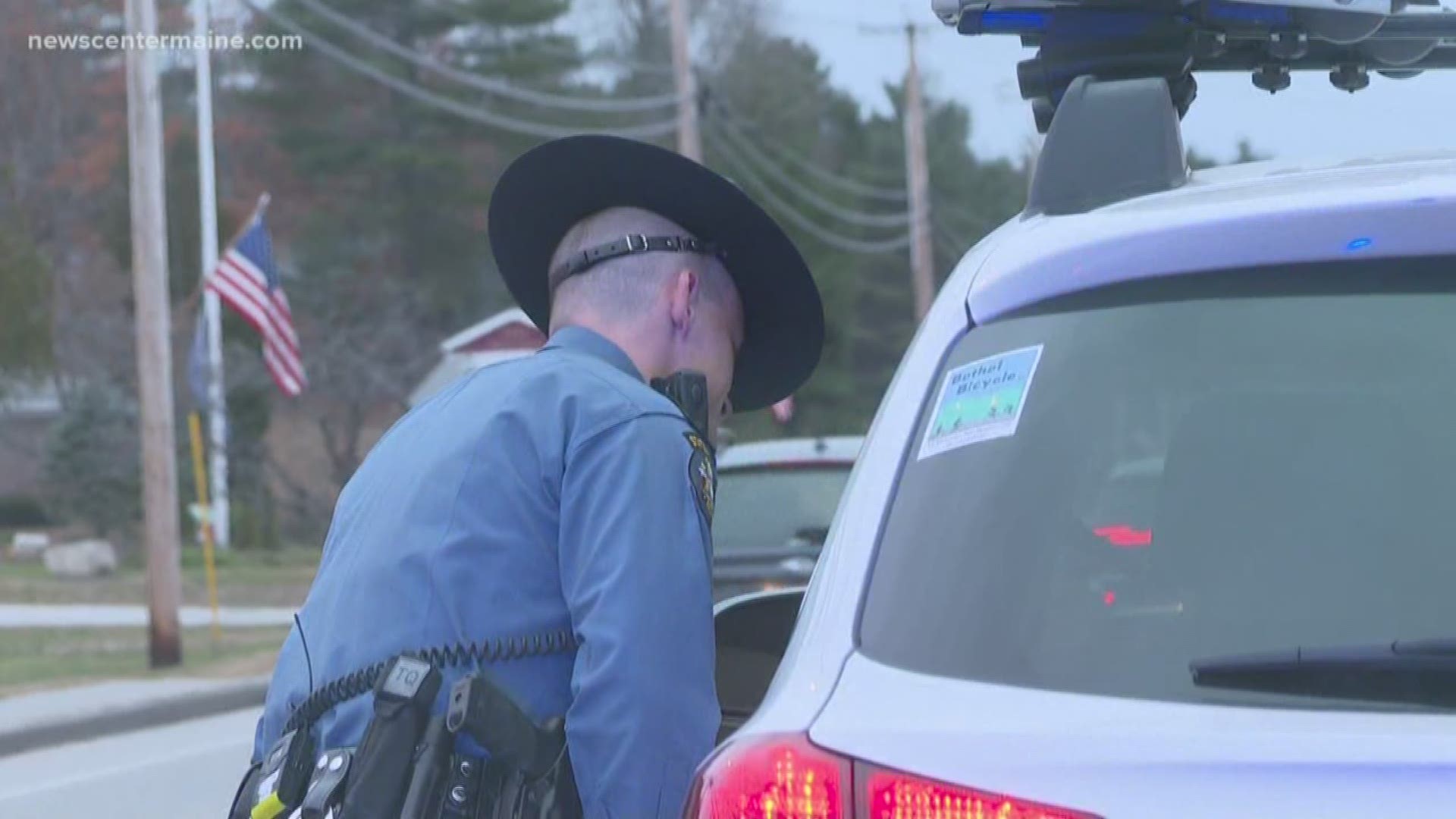(NEWS CENTER Maine) — Police departments across the country are facing a big problem: An increase in calls and a shortage of officers to answer them.
Maine is no exception.
Many police departments, statewide, have multiple positions open, but supervisors are struggling to find qualified candidates to fill them.
Even more troubling, what those numbers look like moving forward, when a large number of veteran officers can retire.
Helping people. As cliche as it might sound it's the No. 1 reason many police officers put on the badge.
A former high school English teacher, Tyler Plourde is now a trooper with the Maine State Police. "I wanted to have an impact on my community being able to help people".
Officer Colin Gordan is a Falmouth police officer. "People ultimately get into to police work to help people, preserve order. As corny and cheesy as that sounds it's true."
What's also true is there are fewer and fewer people willing to do the job. Many departments in Maine are down two, five, even 13 police officers.
Lt. John Kilbride, a 20-year veteran of the Falmouth Police Department, says that's an incredible strain for a department. He says, "it's nerve-wracking, you can't just pluck a police officer off a tree."
There are a lot of reasons for the police shortage.
- Low pay, when compared to the high risks of the job
- The negative attitude some people have toward police
- A difficult and lengthy hiring process
- Young people entering the workforce who are making a balance between work and life a top priority (something that any cop will tell you is not easy)
Maine State Police Lt. David Tripp says while his agency has been successful shoring up their vacancy rate, he admits being down troopers can cause a strain. "We are pushing some would say beyond our capacity with the services we're providing."
It's a problem that could get a lot worse.
The Maine State Police currently has 341 officers. In two years, 15 percent will be eligible to retire. That's 51 state troopers.
There are 161 Portland police officers. Over the course of the next five years, more than 25 percent are or will be eligible for retirement. That's more than 44 officers.
The Maine Warden Service is facing similar issues. There are 125 game wardens. Today, 23 percent can retire. That's more than 40.
Even smaller agencies are not immune.
The South Portland Police Department has 55 officers. Right now, 26 percent can retire. That's 14 police officers.
Lt. Tripp says, "so when we look at that number that could be fairly high, 51 potentially retiring, that does cause us some concern".
Those numbers are forcing departments to be more flexible and take a closer look at how they're recruiting. Some are using social media and incentives or signing bonuses to attract candidates.
But finding interested candidates isn't the only challenge, so is finding qualified ones.
Lt. John Kilbride says, "I will go without before I put forth someone I'm not comfortable with."
When a department is down officers, it's forced to play defense---prioritizing calls as well as cases.
That can not only impact communities, it can place a bigger burden on the rank and file.
"You start putting stressors on really good people and they start evaluating whether they want to stick around, it's a sinking ship. You've hit the iceberg," says Lt. Kilbride.
NEWS CENTER Maine spoke with officers from agencies across the state, who did not want to go on camera. They told us "a lot of times it's like swimming upstream" … "investigations don't get the attention they deserve, because they're not enough officers" … "everyone loves to take video of you hoping you screw up" and "a lot of people don't understand our training or why we do the things we do."
Joe Loughlin, former deputy chief of the Portland Police Department and a national law enforcement consultant, says the stress on law enforcement officers today is enormous.
Loughlin says, "for years we've been saying we can do less with more, well that doesn't work anymore, you need people".
"These are tough days for this profession and tough days for the citizens because in the end, it's the good citizens who suffer," says Loughlin.
Loughlin, as well as those still in law enforcement, says they're confident that, while it won't happen right away, this shortage will pass and ultimately enough people will answer the call to protect and serve.
Lt. Tripp says, "I've had citizens say to me why would you do this job? Why would you want to do a job with everything going on today? Police officers being shot at or shot. Why would you do it? For me personally, if it's not us, then who is it?"

